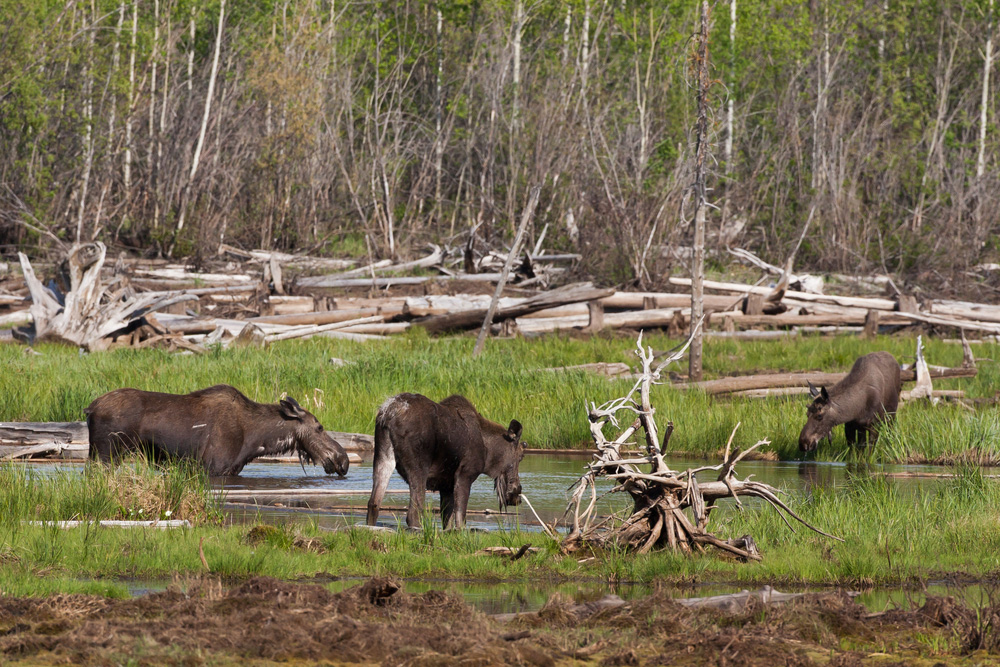The B.C. government got failing grades for its management of lands preserved for biodiversity and species at risk in a report released today by the province’s auditor general.
Better strategic direction and greater involvement of Indigenous groups is needed if the province is to effectively manage lands under its conservation lands program, auditor general Michael Pickup warned.
As the province with the greatest diversity of native fish and wildlife, B.C.’s conservation lands program is an important part of the effort to conserve “some of the most biologically productive estuaries, wetlands and grasslands in the province,” according to the report.
“The program aims to conserve and manage important habitat for significant fish and wildlife species. Habitats conserved through the program include some of the most biologically productive estuaries, wetlands and grasslands in the province,” Pickup said at a media briefing today.
“The program also conserves Wildlife Management Areas, which include internationally recognized wetlands, important migratory bird habitat and habitat for many species at risk.”
But Pickup said the government is failing to properly manage the 2,600 square kilometres of land administered under the program.
The audit looked at whether B.C.’s Ministry of Forests, Lands, Natural Resource Operations and Rural Development, which administers the program within its eight regions, was managing the program effectively.
“Overall, we concluded that the ministry has not done so,” Pickup said. “We found that the program, in fact, lacked strategic direction, and most plans for wildlife management areas were not current or approved.”
Top among the 11 recommendations included in the report is that the province work with conservation partners and First Nations to prioritize habitats under the program and develop strategic plans, including goals and performance measures.
Goals outlined under the program have not been updated for more than 30 years, and the average Wildlife Management Area plan is 19 years old, the report says.
In addition, about 70 per cent of those plans have not been approved, it added, and three of the province’s 31 Wildlife Management Areas didn’t have plans at all.
While the ministry had identified the species and habitat types it aimed to conserve, it had not ranked habitats by importance. Only one region, Omineca Region in the province’s northern Interior, “had completed some initial work in this area.”
Two regions, Omineca and West Coast, had established regional plans for the program.
In addition, the report found that the ministry has not supported staff to collaborate with Indigenous peoples when securing and managing conservation lands.
Regionally, only West Coast, Omineca and Kootenay Boundary regions had specifically directed staff to collaborate with Indigenous peoples on the program, it said.
Despite the lack of direction, the report notes that staff in five of the eight regions — West Coast, South Coast, Omineca, Skeena and Thompson Okanagan — had taken it upon themselves to work collaboratively with Indigenous groups.
The review also found that risks to conservation lands from human activity has increased, with “hundreds of unauthorized activities” taking place between 2009 and 2020, including motor vehicle use, off-leash dogs and harvesting and dumping.
There were limited strategies for addressing unauthorized use, the report found, and Pickup noted that regional staff had limited strategies to resolve the issues.
The report recommends the province work with the Compliance and Enforcement Branch and the Conservation Officer Service to develop a strategy to reduce the unauthorized use of conservation lands.
In an emailed statement, the Ministry of Forests said it accepts all 11 recommendations and that work is already underway to address them.
“Some of this work began in 2020 when our government released the Together for Wildlife Strategy,” it said.
It added that ministry staff are working on a strategic plan for the conservation lands program that will address the auditor general’s recommendations. The new strategic plan will include input from the existing conservation lands partners, the Minister’s Wildlife Advisory Council and the First Nations-BC Wildlife and Habitat Conservation Forum, it said.
“Additionally, as recommended by the auditor general, we will explore the development of new partnerships with Indigenous peoples, as well as building on existing ones, to advance shared conservation goals,” the ministry said.
The conservation lands program was established 50 years ago with the goal of managing habitat important to certain fish and wildlife species, the auditor general’s report says. The lands also contribute to broader environmental conservation, such as carbon storage, flood mitigation and wildlife corridors.
It has been managed by B.C.’s Ministry of Forests since 2011, supported by the Wildlife and Habitat Branch. The program’s current budget is a little over $1 million, excluding salaries and in-kind donations.
But the program has increasingly relied on partnerships to secure and manage conservation lands, the report says. It encouraged British Columbians to question government about how much it should rely on non-profit organizations to secure and manage those lands.
On its website, the province points to the importance of partnerships and “multi-partner arrangements” with NGOs and other levels of government that “played a central role in the history and development of the Conservation Lands Program.”
Among the partners are Ducks Unlimited Canada, the Nature Trust of British Columbia and the Nature Conservancy of Canada.
Although there are no timelines for implementing recommendations, Pickup said the Office of the Auditor General would be tracking the province’s progress.
“We keep an eye to it,” he said. “So that if we find, for example, we get into year two, year three, year four and we find that the recommendations are not being completed… then we’ll ask some questions to the organization that we audited.” ![]()
Read more: Indigenous, BC Politics, Environment

















Tyee Commenting Guidelines
Comments that violate guidelines risk being deleted, and violations may result in a temporary or permanent user ban. Maintain the spirit of good conversation to stay in the discussion.
*Please note The Tyee is not a forum for spreading misinformation about COVID-19, denying its existence or minimizing its risk to public health.
Do:
Do not: